The Stop Climate Chaos coalition, the Environmental Pillar, and the Sustainable Water Network (SWAN) have just written to the Minister for Agriculture, Food and the Marine, Charlie McConalogue in response to the global food security crisis that is emerging due to Russia’s invasion of Ukraine [1]. In their letter, the three coalitions of environmental and civil society organisations called on Minister McConalogue to take action to diversify Ireland’s agricultural system towards a more environmentally and socially sustainable model, support farmers to make the necessary changes to enable this, and ensure expeditious implementation of the European Green Deal, including its Farm to Fork and biodiversity strategies[1].
The terrible acts of aggression perpetrated against Ukraine have led to immense human suffering and loss of life. They have also curtailed Ukraine’s agricultural production raising important food security questions - highlighting existing weaknesses in the Irish and global food systems. In the most direct sense, Ukrainians are being cut off from food supplies and drinking water. Beyond that, there are serious concerns about the impact on global trade in food, animal feed, and synthetic fertilisers. These impacts may have far reaching implications for global food security, animal welfare, and agri-environmental policies across Europe.
The three coalitions have identified the following four food & agricultural risks and concerns for Ireland:
There is a risk that the EU Green Deal and its Farm to Fork and biodiversity strategies, could be watered down or shelved. This would lead to continued dependence on fossil fuels and narrowly focused, unsustainable agricultural practices, such as intensive fertiliser use, that have damaging impacts on our climate, water and biodiversity. Moving to more diverse agricultural practices would ensure both long-term food security and a healthier environment.
Ireland’s narrow approach to food policy exposes Irish consumers to price shocks. Ireland’s agricultural model is typified by a high reliance on imports [2], specialised production [3], declining vegetable growers [4], declining farm incomes [5], and an ageing pool of farmers [6].
Ireland may experience a fodder crisis next winter due to increasing input and energy costs, and reduced feed availability [7]. Ireland’s agricultural sector overemphasises livestock farming [8], especially dairy and beef production, which is dependent on imported feed and fertiliser. This is a long-term issue for Ireland as climate change will increase the risk of summer drought and the likelihood of more frequent fodder crises. Right now, domestic food production alone cannot supply the Irish population with a nutritious diet.
Food prices continue to soar for the poorest countries in the global South who are heavily reliant on Ukrainian and Russian cereal and wheat imports. Food prices have hit a 46 year high, higher than in 2011 when food riots contributed to overthrowing the governments in Libya and Egypt. Moreover, the high prices in combination with supply shortages and the lingering effects of the pandemic will make the global food supply highly vulnerable to extreme weather events throughout 2022.
Dr. Bríd Walsh, Stop Climate Chaos Policy Coordinator said: “The UN has predicted that food prices could increase by up to 22% over the next few months as a result of the invasion of Ukraine. Irish consumers are directly exposed to these price increases - in addition to the already increasing costs of fuel and electricity. The Government should conduct an immediate analysis of Ireland’s food security and the resilience of the agricultural sector. The Government must also ensure that steps in the short-term to shield Irish consumers from these increases in food prices do not involve any weakening of climate measures and obligations in the agri-sector.”
Fintan Kelly, Agriculture & Land Use Policy & Advocacy Officer for the Environmental Pillar added: “It is a damning indictment of Irish agri-food policy that we have allowed our national food and animal feed security to decline over a decade where we experienced multiple fodder crises. We have stumbled into this crisis with our eyes wide open. Now is the time to reshape Irish agricultural policy so that it is fairer, more sustainable and more resilient. Rolling back on the little social and environmental progress that we have made would be disastrous for farmers, consumers, and the planet moving forward.”
Dr. Elaine McGoff, SWAN Director commented: “Given the looming fodder crisis and the diminished supply of synthetic fertiliser, now is the time to seriously consider the reintroduction of dairy quotas, and substantial limits on fertiliser usage. In that context, the Government should withdraw its application for a new Nitrates Derogation and strengthen the Nitrates Action Programme with strict controls on fertiliser use in catchments already heavily polluted with agricultural nitrates.”
Dr. Ciara Murphy, Environmental Policy Advocate with the Jesuit Centre for Faith and Justice said: “Ireland imports approximately 3.5m tonnes of feed ingredients each year to feed our pigs, poultry and cattle. As the world’s supply of grain is cut, we need to face the ethics of using precious grain to produce luxury food items such as meat and dairy rather than directly feeding our global population.”
Karol Balfe, CEO of ActionAid Ireland said: “Crises and changing weather patterns will have an increasing effect on global food systems over the coming years and decades. The conflict in Ukraine comes at the same time as East Africa faces a drought and food shortages. It is essential to ensure that Europe is well-placed to face possible future crises, by implementing the Green Deal and its Farm to Fork and Biodiversity Strategies.”
Oonagh Duggan, Head of Advocacy with Birdwatch Ireland commented: “As we lurch from crisis to crisis, now more than ever is the time to accelerate the transition to more environmentally and socially sustainable farming practices such as agroecology, agroforestry, and organic farming where farmers, citizens, communities and the environment are put first. This is the only path that ensures long-term food security, and food sovereignty, while reducing our exposure to risks and external shocks related to fuel, fertilisers, and animal feed. The global food system will further feel the effects of climate change with farmers on the front line trying to weather the impacts. By acting now, we ensure that farmers and our food systems are more resilient.”
Theresa O’Donohoe, Policy Advisor with Clare PPN added: “This crisis should encourage us to transition at a faster pace instead of a knee jerk reaction towards unsustainable agricultural practices. Climate and biodiversity action is moving us towards greater food and energy independence, as well as greatly improving our resilience to global shocks. We need to move faster with our plans. The comradery, collaboration and willingness to change our lives in a crisis has been proven over the past few years, and we need to apply that response to building a more resilient environment and society through climate and biodiversity action.”
Simon Murtagh, Senior Policy and Research Coordinator with Oxfam Ireland said: “Ireland must show leadership unilaterally and at UN and EU levels to ensure that the negative impact on supply, trade and price of food due to conflict in Ukraine will not affect those already experiencing or most vulnerable to food shortages throughout the world. Strong anticipatory measures are essential to mitigate threats to food security across the world including in the Horn of Africa where, as of today, nearly 21 million people are extremely food insecure and 44 million people are in need of humanitarian assistance in the region. The EU and its member states should increase their allocations to the underfunded $327m WFP appeal, which aims to support around 4.5 million people affected by drought in Ethiopia, Kenya and Somalia with life-saving aid and resilience interventions. We must act decisively in our trade and agriculture policies to stabilise food prices and protect the world’s most vulnerable populations from further food price shocks.”
ENDS
Notes to editor:
[1] The Letter to Minister McConalogue urges the Government to take the following actions (in summary):
(a) diversify Ireland’s agricultural system to a more environmentally and socially sustainable model that ensures long-term food security and less dependence on synthetic pesticides and fertilisers.
(b) support an expeditious and comprehensive implementation of the Green Deal, including Farm to Fork and Biodiversity Strategies.
(c) ensure a Just Transition for farmers where they are supported and incentivised to move to more sustainable agricultural practices with a special emphasis on the horticultural and tillage sectors which have been badly neglected.
(d) planning should be progressed for a reduction in the dairy and beef herds – the reintroduction of dairy quotas would contribute to this goal, as would limits to fertilizer use. Government should withdraw its application for a new Nitrates Derogation and introduce a permitting system for intensive dairy and beef farming, similar to that for pigs and poultry.
(e) ensure no reductions/conversion of areas and habitats for biodiversity in current RDP and future CAP (2023-2027).
The letter can be viewed in full at this link: https://www.stopclimatechaos.ie/assets/files/pdf/joint_ngo_letter_in_response_to_the_ukraine_crisis_and_the_future_of_irish_agriculture_1.pdf
[2] Ireland is heavily reliant on imported grain, with around 60% of the 5.5 million tonnes used in the country every year sourced from overseas. It is used both in products for human consumption and for animal feed. Russia supplies more than 20% of fertiliser used in Ireland, and any intensification of production will need to be met by increased fertiliser imports; however, there is no guarantee that these will be available or at what cost. The organic production sector will not be impacted as much due to lower dependence on inputs.
[3] Ireland’s agricultural sector is very specialised on dairy and beef production. Tillage and horticulture sectors have not been a policy focus and have not received sufficient supports, leading to a continuous decline in vegetable growers in Ireland. Ireland exports huge quantities of beef and dairy products, and imports large quantities of fruit and vegetables including crops that can be grown in Ireland such as potatoes, apples, carrots, and onions.
[4] According to IFA, the number of farmers who grow vegetables in fields has fallen from 400 to 100 over the past 20 years as farmers are unable to make ends meet due to the falling prices offered by retailers. Crop production has fallen by close to 15% in the period 2014-2020 alone, while milk production increased by around 20% over the same period.
[5] According to Teagasc, average family farm incomes are projected to fall by 19% in 2022.
[6] According to the CSO, just 5% of farmers in Ireland were under the age of 35 in 2016.
[7] Ireland has experienced three fodder crises in the last decade linked to climate (2012/13, 2018, 2020); the severity of which ranged from moderate to extreme resulting in acute hunger and starvation of livestock and severe hardship for farmers.
[8] In 2020, there were record numbers of cattle on Irish dairy farms. Aside from the environmental concerns, any further intensification of the livestock sector will lead to greater demand for grains and cereals as feed, which means that those calories are not directly available for human consumption. This is morally questionable given that this impacts the poorest countries in the global South most.
About Stop Climate Chaos
Stop Climate Chaos (SCC) is a coalition of civil society organisations campaigning to ensure Ireland plays its part in preventing runaway climate change. It was launched in 2007 and is the largest network of organisations campaigning for action on climate change in Ireland. Its membership includes development, environmental, youth and faith-based organisations. Its members are: Afri, An Taisce, BirdWatch Ireland, Christian Aid Ireland, Comhlámh, Community Work Ireland, Clare PPN, Concern Worldwide, Cultivate, Cyclist.ie, Dublin Friends of the Earth, Eco Congregation Ireland, ECO UNESCO, Feasta, Fossil Free TCD, Friends of the Earth, Friends of the Irish Environment, Goal, Good Energies Alliance Ireland, Irish Climate and Health Alliance, Irish Heart Foundation, Jesuit Centre for Faith and Justice, Just Forests, Latin America Solidarity Centre (LASC), Liberia Solidarity Group, Methodist Church of Ireland – Council of Social Responsibility, Mountmellick Environmental Group, National Youth Council of Ireland, Oxfam Ireland, Peoples’ Climate Ireland, Presentation Ireland, Self Help Africa, Tearfund Ireland, Trócaire, Union of Students in Ireland, VITA, VOICE, and Young Friends of the Earth.
About SWAN
The Sustainable Water Network (SWAN) is an umbrella network of twenty-five national and local environmental groups working together for the protection and sustainable management of Ireland’s water environment.
SWAN Members: An Taisce, Bat Conservation Ireland, BirdWatch Ireland, Carra/Mask/Corrib Water Protection Group, Cavan Leitrim Environmental Awareness Network, Celebrate Water, Coastal Concern Alliance (Associate), Coastwatch, Coomhola Salmon Trust, Cork Environmental Forum, Cork Nature Network, Dodder Action, ECO-UNESCO, Friends of the Earth, Friends of the Irish Environment, Irish Peatland Conservation Council, Irish Seal Sanctuary, Irish Whale and Dolphin Group, Irish Wildlife Trust, Longford Environmental Alliance, Macroom District Environmental Group, River Shannon Protection Alliance, Save the Swilly, Slaney River Trust, Voice of Irish Concern for the Environment (VOICE).
About the Environmental Pillar
Established in 2009, the Environmental Pillar is comprised of over 30 national, independent environmental NGOs and champions the views of the Irish environmental sector.
Environmental Pillar Members: An Taisce, Bat Conservation Ireland, BirdWatch Ireland, Green Foundation Ireland, CELT, Hedgelaying Association of Ireland, Coastwatch, Irish Peatlands Conservation Council, Coomhola Salmon Trust, Irish Seed Savers Association, Eco-Unesco, Irish Whale & Dolphin Group, Feasta, Irish Wildlife Trust, Forest Friends, Native Woodland Trust, Friends of the Earth, the Rediscovery Centre, Global Action Plan, Sonairte, Glusieacht, Cultivate, Good Energies Alliance, Cloughjordan Eco-Village, the Green Economy Foundation, the Organic Centre, VOICE and the Zero Waste Alliance.



















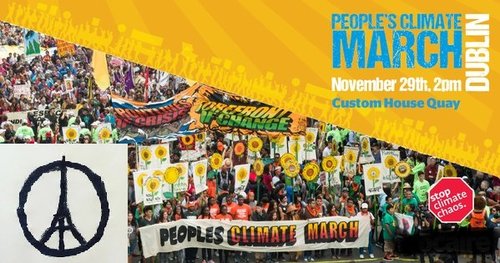


 Reliance on depleting fossil fuels is bad for us and bad for climate change
Reliance on depleting fossil fuels is bad for us and bad for climate change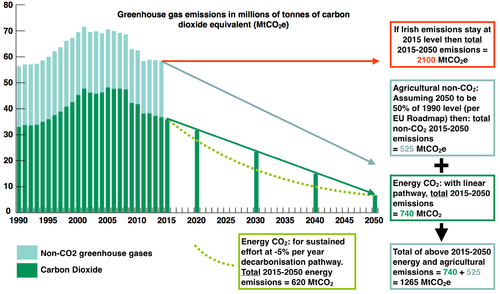
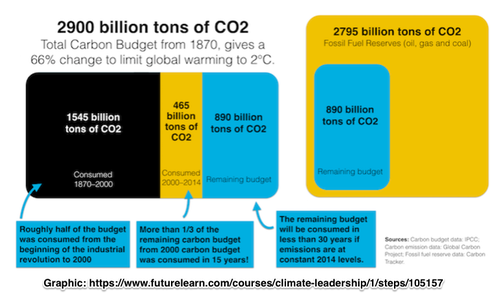
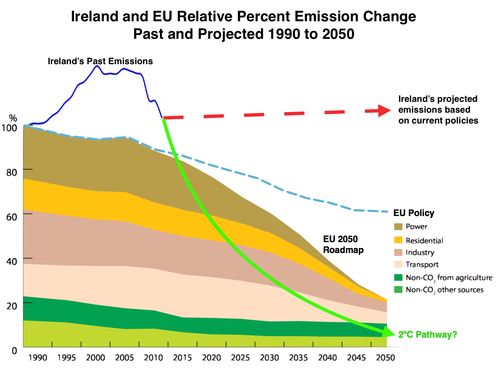
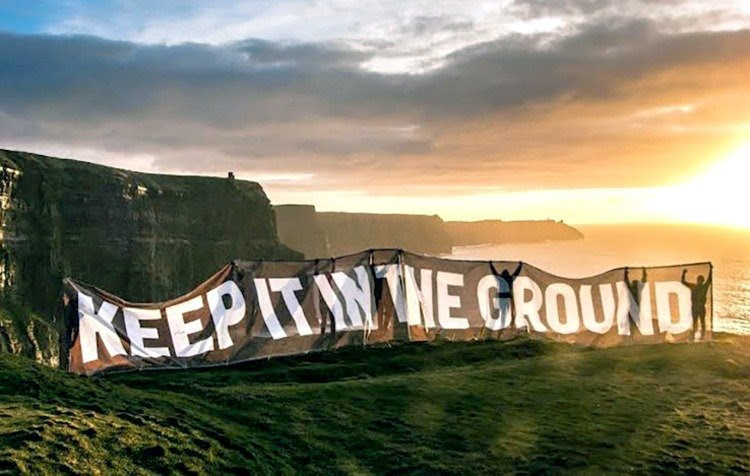













 Vuvuzela protest urges Minister to set date for climate law as he travels to UN climate talks in South Africa
Vuvuzela protest urges Minister to set date for climate law as he travels to UN climate talks in South Africa









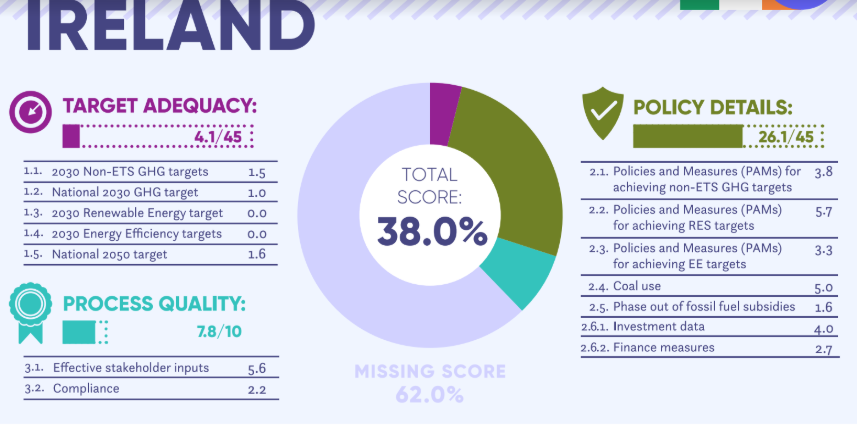



 At the end of November, governments will be gathering in Paris for COP 21 to finalize a global agreement on climate change. People around the world are calling for action – especially those who are most vulnerable to climate impacts yet have had no role in creating the problem. Our voices are critical if we want a better, more just, and sustainable society.
At the end of November, governments will be gathering in Paris for COP 21 to finalize a global agreement on climate change. People around the world are calling for action – especially those who are most vulnerable to climate impacts yet have had no role in creating the problem. Our voices are critical if we want a better, more just, and sustainable society.
 Stop Climate Chaos, a coalition of development, environment, youth and faith based organisations, is sending every TD a copy of its new campaign leaflet which graphically illustrates Ireland's shocking pollution record. As our public representatives board the shamrock express this St Patrick's week "So, Just How Green Is Ireland?" highlights how far we have to go to do our fair share to prevent runaway climate change.
Stop Climate Chaos, a coalition of development, environment, youth and faith based organisations, is sending every TD a copy of its new campaign leaflet which graphically illustrates Ireland's shocking pollution record. As our public representatives board the shamrock express this St Patrick's week "So, Just How Green Is Ireland?" highlights how far we have to go to do our fair share to prevent runaway climate change. 



 Arriving at my first ever international climate change negotiations had all the markings of a daunting and overwhelming experience. Thousands of delegates, numerous negotiation streams, countless meetings and side events – not to mention the 28°C temperatures adding to the pressure inside the negotiation halls.
Arriving at my first ever international climate change negotiations had all the markings of a daunting and overwhelming experience. Thousands of delegates, numerous negotiation streams, countless meetings and side events – not to mention the 28°C temperatures adding to the pressure inside the negotiation halls.
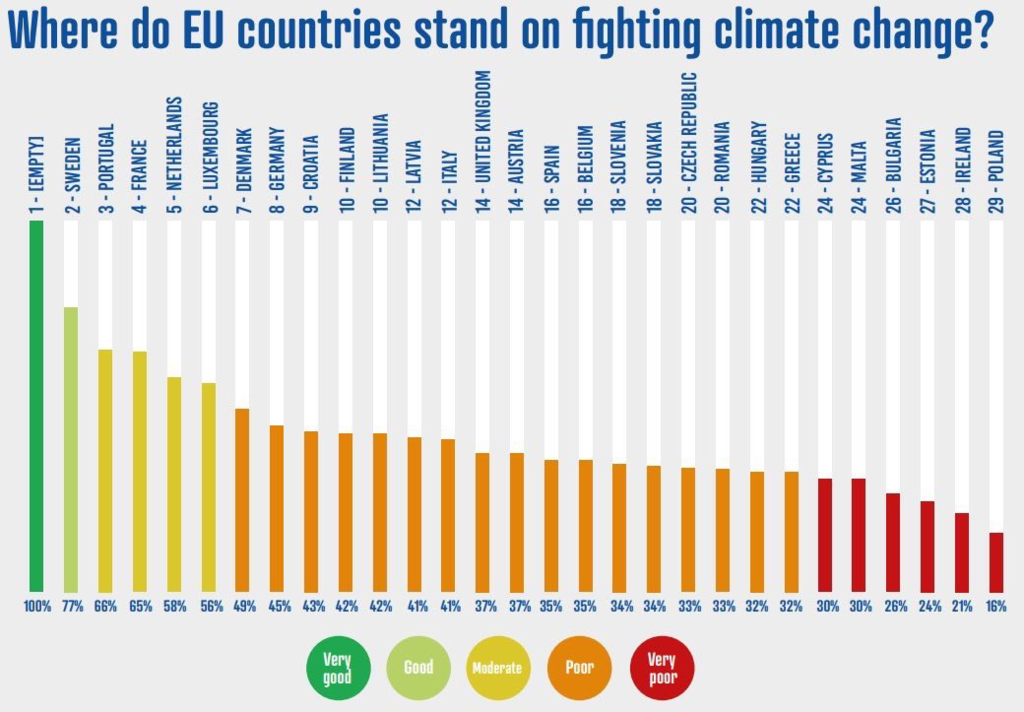












 We are dressing up as Homer Simpsons to tell the Government D'oh!
We are dressing up as Homer Simpsons to tell the Government D'oh!













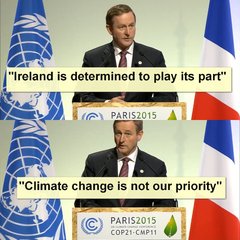
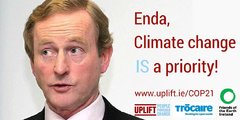









.jpg)






 Despite the rain, mud and somewhat 'chaotic' weather conditions, Stop Climate Chaos campaigners made their presence felt at Oxegen and collected an incredible 16,000 signatures for the Stop Climate Chaos petition over the two days. So hats off to the fantastic team of dedicated campaigners for all their hard work, energy and enthusiasm. In addition to collecting the signatures, the Stop Climate Chaos crew spoke to music fans about the impacts of climate change on developing countries and the need for Ireland to play its part in reducing global greenhouse gas emissions.
Despite the rain, mud and somewhat 'chaotic' weather conditions, Stop Climate Chaos campaigners made their presence felt at Oxegen and collected an incredible 16,000 signatures for the Stop Climate Chaos petition over the two days. So hats off to the fantastic team of dedicated campaigners for all their hard work, energy and enthusiasm. In addition to collecting the signatures, the Stop Climate Chaos crew spoke to music fans about the impacts of climate change on developing countries and the need for Ireland to play its part in reducing global greenhouse gas emissions. The next government will probably hold power for about half the time the scientists say we have to prevent runaway climate change. We have to send them a message that we want a reduction in emissions to be firmly on the agenda.
The next government will probably hold power for about half the time the scientists say we have to prevent runaway climate change. We have to send them a message that we want a reduction in emissions to be firmly on the agenda.